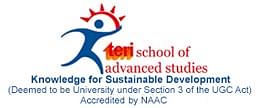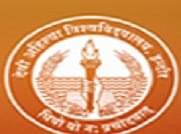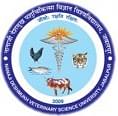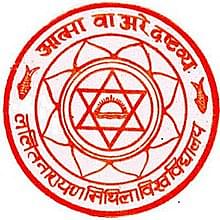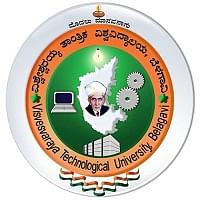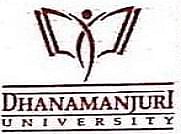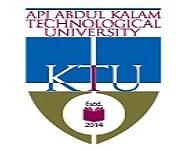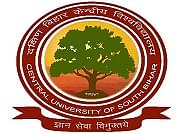Unlocking Opportunities: A Comprehensive Guide to a Ph.D. in Tourism Management
Pursuing a Ph.D. in Tourism Management is an
exciting and rewarding journey that can lead to numerous academic,
professional, and personal growth opportunities. This blog provides a
comprehensive guide to obtaining a Ph.D. in Tourism Management at a prestigious
university, answering key questions about the admission process, eligibility
criteria, and program structure.
What is a
Ph.D. in Tourism Management?
Q: What does a Ph.D. in Tourism Management
entail?
A: A Ph.D. in Tourism Management is an
advanced academic program that focuses on conducting original research in the
field of tourism. It encompasses various aspects such as tourism development,
marketing, sustainability, policy analysis, and consumer behavior. This program
aims to equip students with the knowledge and skills needed to address complex
issues in the tourism industry and contribute to academic and practical
advancements in the field.
Why Pursue
a Ph.D. in Tourism Management?
Q: What are the benefits of pursuing a Ph.D.
in Tourism Management?
A: Pursuing a Ph.D. in Tourism Management
offers several benefits, including:
- Academic Achievement:
Achieving the highest level of academic qualification in tourism.
- Research Opportunities:
Engaging in cutting-edge research and contributing to the body of
knowledge in tourism.
- Career Advancement:
Enhanced career prospects in academia, research institutions, and industry
leadership roles.
- Networking:
Building a network of professional contacts in academia and the tourism
industry.
- Personal Growth:
Developing critical thinking, analytical skills, and expertise in a
specific area of interest.
Admission
Process for a Ph.D. in Tourism Management
Q: What is the admission process for a Ph.D.
in Tourism Management at a university?
A: The admission process typically involves
the following steps:
- Research and Application:
Begin by researching universities that offer a Ph.D. in Tourism
Management. Review their specific admission requirements and deadlines.
Submit an application form along with the required documents.
- Eligibility Check:
Ensure you meet the eligibility criteria, which usually include holding a
relevant master’s degree and meeting specific academic performance
standards.
- Entrance Exam: Some
universities require candidates to take an entrance exam to assess their
knowledge and aptitude for research.
- Research Proposal:
Submit a research proposal outlining your intended research topic,
objectives, methodology, and potential contributions to the field of
tourism management.
- Personal Interview:
Shortlisted candidates may be invited for a personal interview to discuss
their research interests and assess their suitability for the program.
- Final Selection:
Admission decisions are based on the candidate’s academic qualifications,
entrance exam scores, research proposal, and interview performance.
Eligibility
Criteria for a Ph.D. in Tourism Management
Q: What are the eligibility criteria for a
Ph.D. in Tourism Management?
A: The eligibility Ph.D. in Tourism Management typically include:
- Academic Qualifications: A
master’s degree in tourism management, business administration,
hospitality management, or a related field from a recognized university.
- Minimum Grades: A
minimum percentage or GPA in previous academic qualifications (usually
around 55% to 60%).
- Research Experience: Some
universities prefer candidates with prior research experience or
publications.
- Entrance Exam: A
good score in the university’s entrance exam or other recognized exams
like UGC-NET, GRE, or GMAT.
- Language Proficiency:
Proficiency in English, often demonstrated through scores in exams like
TOEFL or IELTS, especially for international students.
Program
Structure and Syllabus
Q: What is the structure and syllabus of a
Ph.D. in Tourism Management?
A: The structure of a Ph.D. in Tourism
Management program typically includes the following components:
- Coursework:
Initial coursework covering advanced topics in tourism management,
research methodologies, and theoretical frameworks.
- Research Methods and Techniques
- Advanced Tourism Theory
- Quantitative and Qualitative Analysis
- Strategic Tourism Management
- Sustainable Tourism Development
- Comprehensive Exams:
Written and/or oral exams to assess the candidate’s knowledge and
readiness for research.
- Research Proposal Development:
Refining the research proposal based on feedback from advisors and peers.
- Dissertation Research:
Conducting original research, collecting data, and analyzing findings
under the guidance of a supervisor.
- Dissertation Writing:
Writing the dissertation, which includes a literature review, research
methodology, findings, and conclusions.
- Dissertation Defense:
Presenting and defending the research findings before a panel of experts.
Career
Opportunities
Q: What career opportunities are available
after completing a Ph.D. in Tourism Management?
A: Graduates of a Ph.D. in Tourism Management
program can pursue various career paths, including:
- Academic Positions:
Teaching and research positions at universities and colleges.
- Research Institutions:
Roles in government and private research organizations focusing on tourism
studies.
- Industry Leadership:
Senior management and consultancy positions in the tourism and hospitality
industry.
- Policy and Planning:
Positions in government agencies and non-profit organizations involved in
tourism policy and planning.
- International Organizations:
Roles in global tourism organizations such as the United Nations World
Tourism Organization (UNWTO).
Challenges
and Rewards
Q: What are the challenges and rewards of
pursuing a Ph.D. in Tourism Management?
A: Pursuing a Ph.D. in Tourism Management
presents both challenges and rewards:
- Challenges:
- Rigorous Research:
Engaging in extensive research and maintaining academic rigor.
- Time Management:
Balancing coursework, research, and personal commitments.
- Funding: Securing financial
support for research activities and living expenses.
- Publication Pressure: The
expectation to publish research findings in reputable journals.
- Rewards:
- Intellectual Fulfillment:
Achieving a high level of expertise and contributing to the academic
community.
- Career Advancement:
Enhanced career prospects and opportunities for professional growth.
- Networking:
Building a network of professional contacts and collaborators.
- Personal Growth:
Developing critical thinking, problem-solving skills, and resilience.
Conclusion
Pursuing a Ph.D. in Tourism Management at the best tourism management university offers an enriching academic journey and a
gateway to numerous career opportunities. Understanding the admission process,
meeting the eligibility criteria, and being familiar with the program structure
can help aspiring candidates navigate their path to success. Embrace this
opportunity to contribute to the ever-evolving field of tourism management and
make a lasting impact on the industry.





